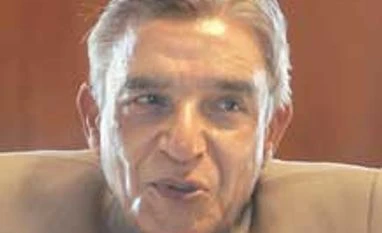You have introduced a fuel price adjustment mechanism. How much will the railways gain from this move?
The total outgo on account of additional burden due to diesel and electricity cost from April 1 has been estimated at Rs 5,100 crore. The burden has been put on freight only. From April 1, there would be about five per cent increase in freight charges, which would yield Rs 4,200 crore.
The balance Rs 850 crore, part of which comes on passenger fares, is being absorbed by the railways.
Passenger fare has been hiked in a hidden way. Isn't it?
Nothing can be hidden. You have to come to Parliament for everything. Only service charges have been increased. It will bring improvement in the system. Earning from this is insignificant.
There is no increase in the basic fares. This increase in service charges is to give better services.
Why do you appear apologetic in explaining the hike in service charges?
I have been asked a question, I am just answering that. I am not at all apologetic. We have done it in a very good manner and I am sure it will find acceptance.
What would be the impact of the freight hike on real inflation?
Inflation is a little different yardstick to judge, but I can tell you that for the goods that are being carried by the railways, the increase in the carry charges will vary from four paise to eight paise a kg.
The Bharatiya Janata Party says this is a Rae Bareli budget. How do you respond to that?
I think they are very good at coining different descriptions for anything, but this is not the view that has gone from anything that I have said. What I have said and I maintain that every region's due has to be given to them.
It appears that fuel price adjustment will only hike fares. Is it the case?
I said it (fuel price adjustment) has to be dynamic in nature. It can go either way. If prices were to come down, we will reduce this. We have proposed this and there will be discussion on this and I hope there would be a unanimous view on this, which will support the railways.
How will the railway's work be associated with MGNREGS, mentioned in the budget?
The railway track is a 64,000-km line. In different parts of this line, whatever work can be done under MGNREGS (Mahatma Gandhi National Rural Employment Guarantee Scheme), like making trenches, will be part of this. I had written to Jairam Ramesh (rural development minister). He has replied to the letter. He has agreed in principle. People can work on rail tracks under MGNREGS.
The panchayats in whichever area would be willing to do this, we will work together with them.
You have said if the economy has to grow by 10 per cent, the railways will have to grow by 12 per cent. The projected investment by the railways, however, hardly indicates that...
You are right that investment is a must. It's correct that the railways' contribution to GDP (gross domestic product) is significant. But simultaneously, I have also said the railways growth is also dependent on GDP growth.
Both are inter-linked.
When the economy was on an upswing, the railways also saw a good growth.
)
